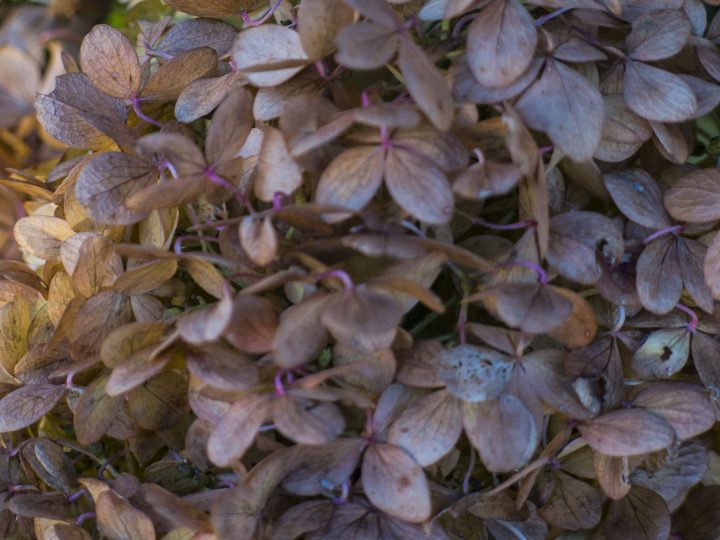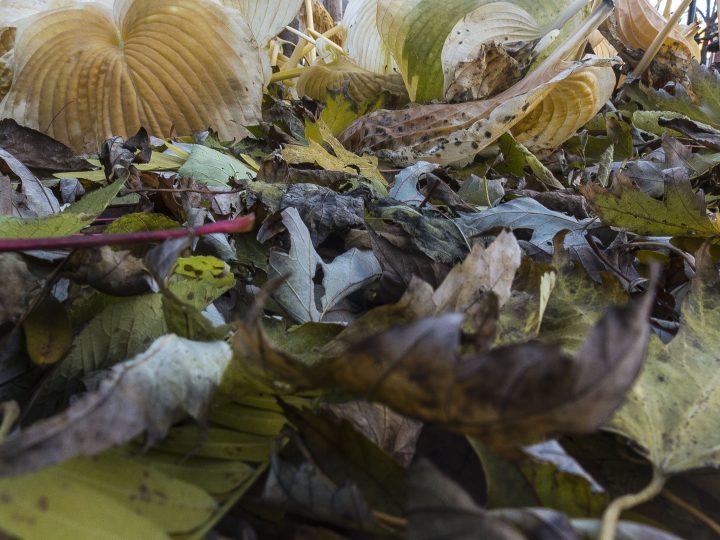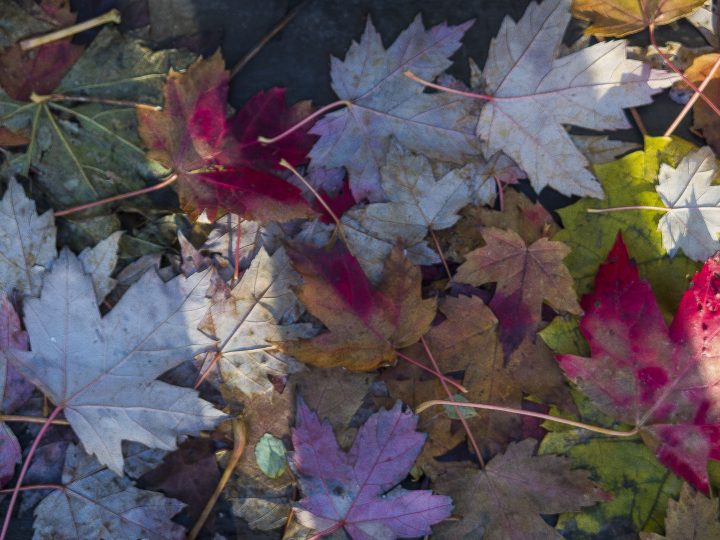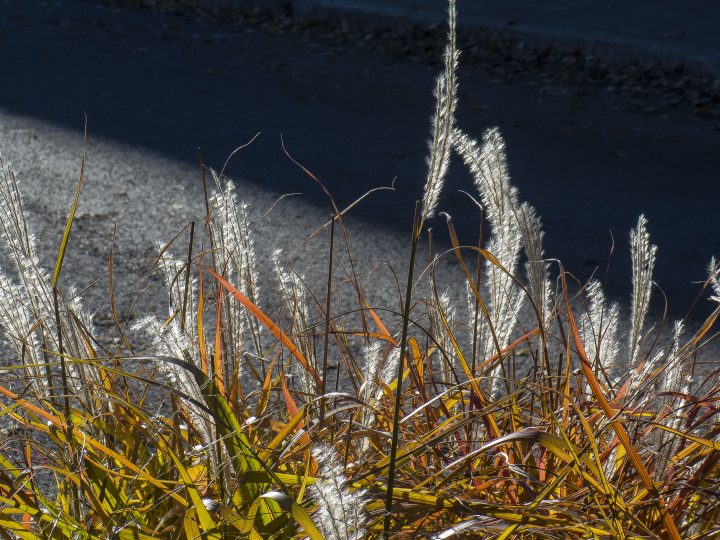My father’s death defeated me; I felt robbed by it. It didn’t come as a surprise because he had cancer, lung metastases to be exact, and we were told at some point that he had a month left at most. Still, his death defeated me. He was absent during his own father’s death a continent away, so he told me one day that being there for a parent’s dying was a privilege. I didn’t understand what he meant until he passed away himself. It wasn’t just that I had wanted to see him out as he had seen me being born, or that I had wanted to be there in some foolish act of solidarity. It was that, selfishly, I had also hoped to learn from the act of dying. He had been a born teacher, as well as a university professor, and I, who am naturally inquisitive, had wanted him to teach me that one last thing as he had taught me to fight bullies, stand up for my principles, or use my first camera or computer. Instead, he went through that rite of passage on his own, which is to say very much alone, as if he had not wanted to share what I know he saw as a beating, a vanquishment, because he’d thought until the very end that he could trick death.
In “The Race,” a poem taken from The Father, the collection in which she details her father’s dying and death, Sharon Olds recounts running breathless through an airport to catch a plane so as to be at his bedside. Having made it, she “walked into his room” and, with gratefulness, simply “watched him breathe.” I remembered that poem on January 30, 2018, as my best friend drove as fast as she could through the streets of Montréal to bring me to the palliative-care hospital on time after my mother had called to say my father had lapsed into a coma. It was a Tuesday, early in the morning, and over the mountain Westmount parents were dropping off their children and double-parking their massive SUVs in front of posh schools, so traffic was stalled and slow. Unlike Olds, I did not make it on time. I tumbled out of my friend’s car and ran over the iced parking lot, through the halls of the hospital, and finally into my father’s room, but my mother, who’d arrived before me, mouthed the words “It’s over” as I stood by his bed, smiling in confusion because he still looked so life-like with his eyes open wide, his mouth agape in what seemed like wonder. Even my mother had missed the moment of his last breath.
I had no idea how to process the sovereign solitariness of his passing. Only an hour later, when a nurse told me that she guessed I was his daughter because I resembled him, did I allow my sorrow to well up through my shock in an awkward surge of uncomprehending hurt. So I did not learn a thing from my father about dying, and have few stories about that, other than that I know now it is possible to cross that threshold unaccompanied, not because we are born alone and will die alone as the cliché goes, but because sometimes the people we love just don’t make it to our deathbed on time or at all.
In “His Smell,” Sharon Olds also remembers her father’s scent before he died: he smelled “like wet cement. . . crushed granite. . . Jurassic shale. . . tang of chlorine. . . the faint mold from the rug in the house. . . .” The similes are strongly evocative of the organic and the chemical.
Five days before my own father died, the doctor, a young Jewish woman, took us aside and whispered, “It won’t be long. He has begun to smell of death.” She knew my mother was a doctor too, so I suppose she saw no need to be less blunt, something I appreciated. After the doctor left, I leaned over and, like a small animal, sniffed my father’s neck and cheek as I said goodbye to him that day, yet I picked up on nothing unusual and marvelled at her refined and sensitive nose. But when I got home to my parents’ house to prepare tea for my exhausted mother, I noticed a thick coating of ice on the front steps, walked inside, found a hammer in my father’s toolbox, came out again, and on my knees began furiously cudgelling the ice. Son of a bitch, I thought; you’re leaving us. And now I have to take care of everything without you! I whacked the ice so hard that pain rose up my arm, strummed my shoulder’s tendons, and the hammer’s head flew off the handle in a wide arc and landed in the snow behind me.
That evening I looked online for descriptions of the smell of dying: here science and literature diverge, for it is said to be a sweet smell—the smell of acetone, or nail polish remover—caused by changes in metabolism as the body shuts down. But I missed that too and was therefore left without my own poetic similes.
To me, my father had simply smelled like my father at that stage of his life when he was tired and letting go. He who had always appreciated the citrusy tang of fragrances by Christian Dior or Calvin Klein now felt like a slightly neglectful or musty old man. Four weeks before his death he had asked for something to make himself feel better: not a full-bodied fragrance, he had explained, but something lighter, so I bought him a modest French cologne by Mont St-Michel. He had looked lost as he’d fingered the bottle and asked, haltingly, “Where do I apply this?” What had been a sort of last wish a few days earlier had been forgotten already as death loomed nearer and instructed him to disremember everything, even the smallest pleasures. At Christmas, he had eaten a thread, a mere fibre of roast duck, just for a last taste of the meat he loved most, before sitting back in his chair as if that had been too much effort for one day, and after that he never sat at a table or ate anything again. He drank milk through a straw, and then not even that, just water now and again, and then ice chips.
Dying is an intensely material, physiological process. In cases where the patient dies a slow death, as my father did, that process is well known and described quite precisely by the medical community: the patient loses his appetite, loses the capacity to rise up from his bed, sleeps all day, becomes incontinent, breathes more shallowly and infrequently, and at the end, curiously, the toes curl up. A day or so before death, a brief period of uncanny lucidity is not uncommon. My father, who lost all his bearings in the week that preceded his death, suddenly sat up in bed twenty-four hours before he died and asked my mother when her birthday was. Even as he’d lost his appetite completely, my mother had insisted on feeding him a small meal daily, which he had rejected impatiently. Her denial was strong. Now stunned and encouraged by his sudden burst of energy and revived memory, she told him delightedly that it was to be the next day. Science can account for much, but not for these small acts of seemingly literary irony.
Neither does science account for those Wittgensteinian areas, those scientific vacuums whereof we cannot speak and about which we must perhaps remain silent—namely, the metaphysical. What happens at death? Do we cross over into some other quantic reality, some other realm?
In my father’s case, 2018 was not the first time he’d died. He’d had a first crack at it eight years earlier when he lay in the intensive care unit after a bout of double pneumonia and had a heart attack. I was there that time, and just before he collapsed and the doctors called a Code Blue and pushed us brusquely out of the room, he had a moment of being quite literally somewhere else. He stared at a corner of the room as if he were recognizing someone he’d known a very long time ago and was surprised to see again, and in the process knocked the attending nurse’s glasses off her nose as he pointed past her. He did not seem frightened so much as pleasantly surprised, as if he’d never thought he would see that person again, but there he or she was. Because I was convinced that he was seeing something of tremendous import, I looked to where he was pointing and then back at his face, but unlike him I was tethered firmly to this world and saw nothing. Then he collapsed, his heart a tightened fist.
They intubated him, put him on a life-support machine, and when he woke up several hours later, his wrists tied to the sides of the bed so he wouldn’t pull off the breathing tube, he gave the finger to whomever entered his room, and he grunted angrily, demanding to be disintubated. He had been jolted, shocked back to life, and the vision he had seen had perhaps been far more cordial, warm, and strangely human than the brutal reality of the intensive care unit.
Experiencing apparitions before death is quite typical, in fact. In The Art of Dying, neuropsychologist Peter Fenwick outlines what dying might be like from the narratives of a large sampling of people who underwent a near-death experience. In many cases, persons on the brink of death claim to be visited by the manifestation of a dead relative who tells them that they have come to bring them over to the other side of life. In Christian communities, these apparitions are often said to be angels. I will never know what my atheist father saw before he almost died. When he recovered, he lost all memory of that moment, which raises questions about what those people interviewed by Dr. Fenwick actually remembered.
Science quits at the threshold of death. It might describe physiological phenomena, speak of the death of the heart and that of the brain, describe brain activity that, in rare cases, can last up to ten minutes after the body is said to have died, or note that genetic activity continues frenetically in the days after death, but death remains far more inscrutable to scientists than it does to authors, who paint it and what lies beyond in bold, sensual strokes: “[I]t seems to me,” Pablo Neruda writes in “Nothing But Death,” “that [Death’s] singing has the colour of damp violets.” The operatic and the cemeterial mingle here in a haunting metaphor, but above all, Neruda suggests that death is a continuance: death comes, the dying die, death sings, exeunt the dead, death sings; nothing really ends.
Others belittle death with the idea that spirit rises higher than the mouldy hand of mortality. In “Death Be not Proud,” John Donne appears quite positive that death’s power is limited and even that “poppie, or charmes can make us sleepe as well, / And better then [death’s] stroake.” Why then grant death such a terrifying hold over our imagination? In fact, imagination holds greater sway over death because, Donne tells us with confidence, it allows us to spook death by claiming that it too can be defeated by mere sleep. For Mary Oliver, in “When Death Comes,” the only true capacity of death consists in simply stepping forward, much like a cab driver or a concierge, while she, the dying, steps “through the door full of curiosity, wondering: / what is it going to be like, that cottage of darkness?” Death is but an impersonal sort of worker who ushers an actor with tremendous agency onto another phenomenal but enigmatic reality. Scientists doubt and stop at the point where hesitation stumbles into unknowing. Literature dashes forward and takes desire for a fact: death is not the end; spirit goes on and story takes over.
As my father lay on his narrow hospital bed in January 2018, I could have recalled that purple patch from Michael Ondaatje’s The English Patient, the one that begins: “We die containing a richness of lovers and tribes” and goes on to claim that bodies are marked with experience and become, in death, a posthumous “cartography.” But what I saw on my father’s face on the day of his death was not the intricate stamp of experience but rather innocence and soul restored. He had grown up and defied the Church that had attempted to oppress him; he had stood up to dictatorship, gone to prison, sought exile twice and become a refugee in possession of a United Nations passport, learned new languages in order to survive in new territories, tended to others as a doctor; he had taught thousands of students, trained young physicians, guided them in keeping others alive and healthy; he had struggled with marriage and fatherhood and doubted himself as a professional; he had fought his demons, and asked for forgiveness for his errors before dying.
In the last years of his life one of his sole remaining joys had been to feed the blue jays and cardinals that stopped by the crabapple tree in his backyard every Spring until they visited him with their young later in Summer, as if to gratefully introduce them to him before leaving in late Fall. In death, he was closer to infancy than to experience: he was free, rid of conventions, expectations, disappointments. He was, quite simply, done with us and with all this, and I was angry because I envied him his hard-earned, new-found, thunderous, and unchangeable peace and resented that he left us behind to fight all the tiresome, petty battles until our own time comes.
Because he had always loved bodies of water and had sailed as a young man, he’d asked that we scatter his ashes upon the waters of the St. Lawrence River. Some friends were horrified and asked if I’d have to step into the churning waters holding his ashes in an urn. Was that not dangerous? Was it wise? “No,” a friend, a playwright, admonished, “that sounds like the very formula for a tragicomedy.” But one funeral home agreed to perform this rite for us, and because I’d fought them tooth and nail so they wouldn’t read any scriptures during the funeral, the officiant turned to us in a moment of slight disorientation and, feeling that words were nonetheless necessary, said earnestly that from now on we would be able to feel my father everywhere in nature as he rose up from the waters as steam, joined clouds, rained down upon the earth, and made things grow.
Despite my customary sarcasm, I was unexpectedly satisfied with what was an uncomfortable improvisation that produced this simple ecology of death. Even today, it still seems truer to the essence of death itself than most of the offerings of science or literature. T.S Eliot was wrong, I think: there is no fear in the “handful of dust” that is death, only the tenderness of the Zen Koan known as the Original Face Koan, which asks, “What did your face look like before your parents were born?” The answer—which in classical Zen training must be grasped intuitively—is that it is the face of the universe and of original consciousness itself. There is no death, no Dies Irae, no Kyrie; there is, certainly, a transformation that allows for a return we rarely ponder in earnest, in another form entirely, but that partakes in a sort of symphony of natural systems or structures that we cannot fully hear or grasp, but that we may at times divine when we are open to it.
My father’s funeral in the month of May was attended by few. It was what he had wanted and asked for. In February, on the date of his birthday, I had quietly organized a Buddhist ceremony to send off his soul in wisdom and peace. I consider myself a pragmatic Buddhist; I adhere to the practice of Buddhism but shun what I cannot verify, so I cannot speak to reincarnation, but he had not always been a peaceful spirit, and I felt he probably needed the blessings on whatever journey he had entered. On the day of his funeral in May we congregated at a point where the river is calm, out East on the Island of Montréal, and laid flowers upon his ashes, which were encased in ice. The flowers, however, fell off long before the ashes themselves sank into the river although they floated along and accompanied his remains like loyal and attentive vegetal pallbearers, and I too walked and then ran along the shore for a little while to see him off once and for all, and when the block of ice tipped over into the gray waters, my heart capsized along with it, and it was a long time before I was able to emerge from that Orphic descent.
When we drove off to return home, a large blue jay perched on a light signal, and as I waved at it to acknowledge this unexpected last tribute to my father, it flew off and the light turned green. It is that very material ecology of death I wish for myself when it will be my turn: humans, plants, and beasts present to witness my next, but not my last, metamorphosis. Much more so than by literature or science, my loss is tempered by this artless reality.














